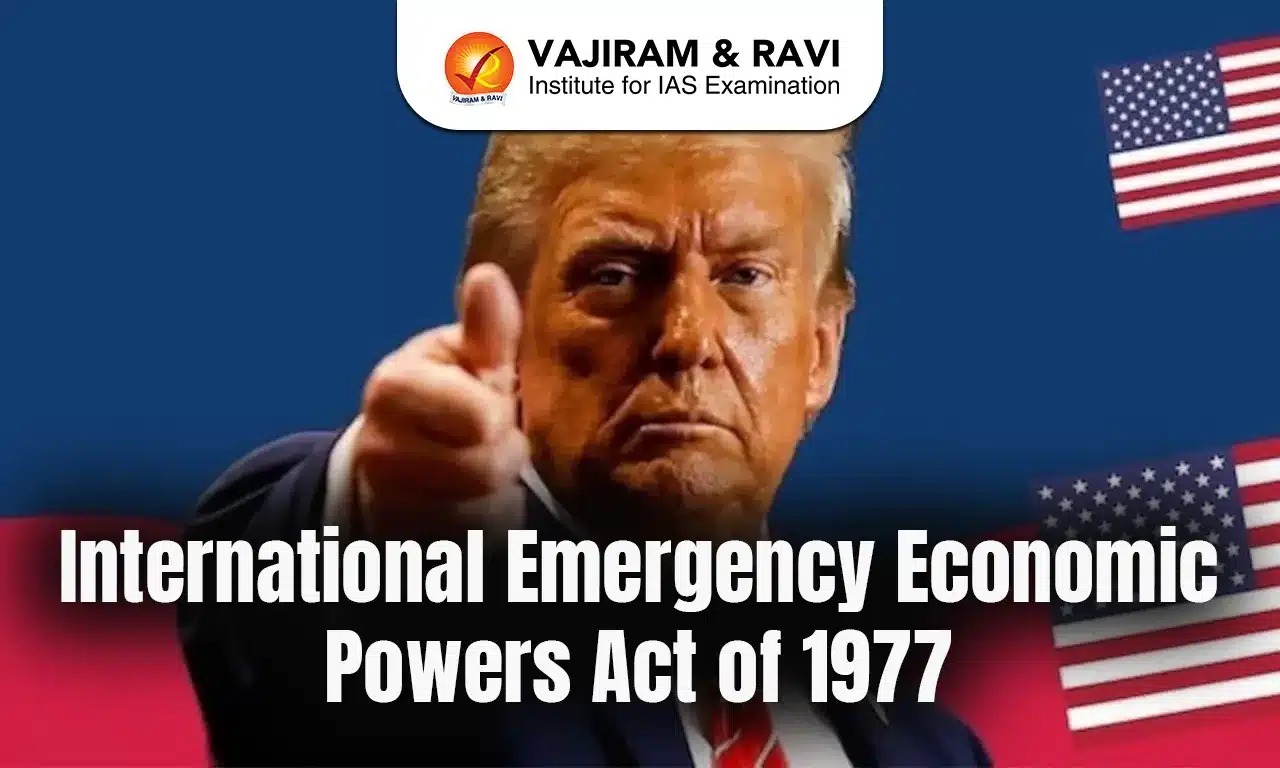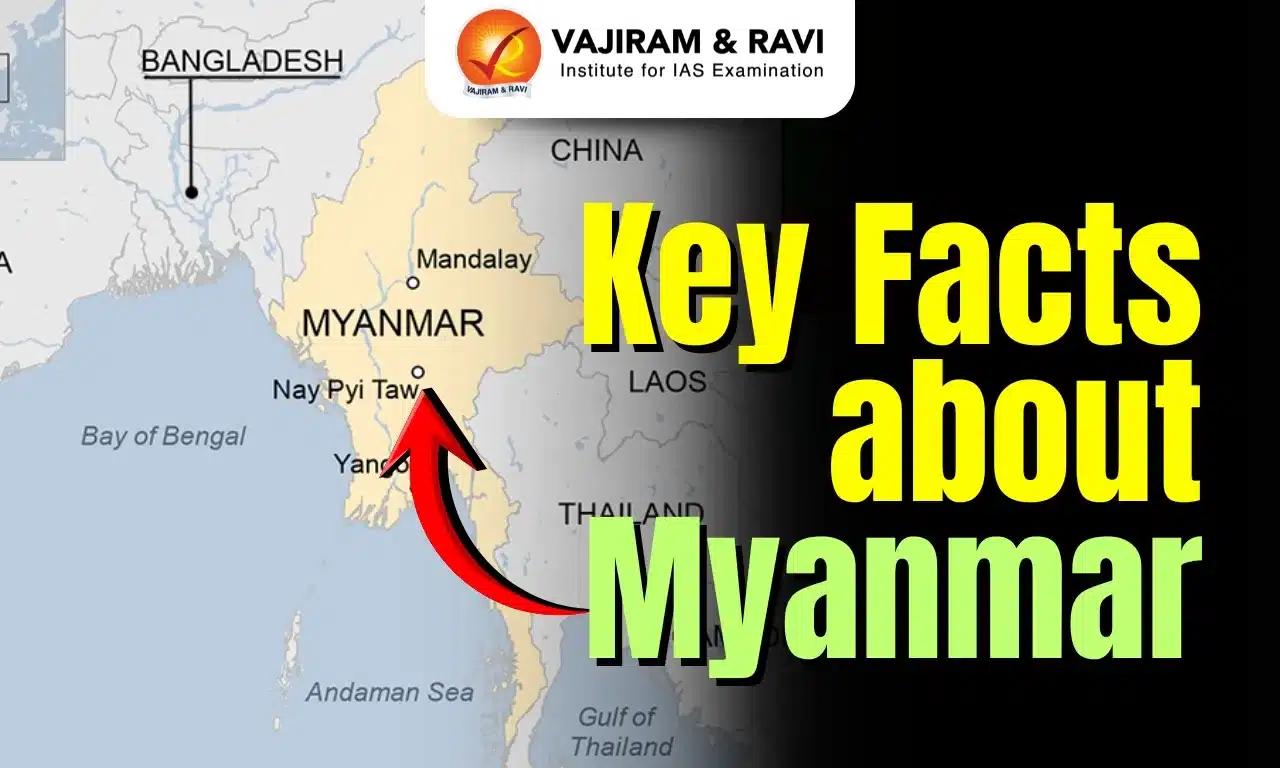International Emergency Economic Powers Act Latest News
A U.S. federal court recently blocked President Donald Trump’s broad tariffs, ruling that the International Emergency Economic Powers Act (IEEPA) doesn’t give him authority to impose sweeping import taxes.
About International Emergency Economic Powers Act of 1977
- It is a United States act which was legislated on 28 October 1977.
- It gives the president broad powers to regulate various financial transactions upon declaring a national emergency.
- The IEEPA empowers the US president to proclaim an unusual and exceptional threat to the federal security, foreign policy, and economy of the United States that originates in whole or in considerable part outside the United States.
- It also empowers the president to restrict transactions and freeze assets in response to such a statement.
- In the case of an actual attack on the United States, the president has the authority to seize property associated with a nation, group, or individual that assisted in the attack.
- In addition, because the IEEPA is governed by the terms of the National Emergencies Act (NEA), an emergency proclaimed under the Act must be renewed annually in order to stay in existence.
- IEEPA is a treaty that extends executive power over crises during times of peace.
- The IEEPA empowers the president to respond to uncommon and extraordinary risks to national security by altering the United States’ economic policy.
- The IEEPA serves as the governing authority for much of the US sanctions regime.
- The US Congress initially passed IEEPA in an attempt to restrict the emergency economic powers granted to the president under the Trading with the Enemy Act, a 1917 law that gave the president expansive authority to regulate international transactions during wartime.
- President Richard M. Nixon used the precursor statute to briefly impose a 10 percent universal tariff in 1971.
- No president has previously used IEEPA to put tariffs on imported goods.
- Instead, presidents have imposed tariffs in response to national security threats using Section 232 of a 1962 trade law.
- That legal provision differs from IEEPA in part because it requires an investigation and report that has to be issued within 270 days.
- The provision also focuses on certain imports that threaten to impair U.S. national security.
International Emergency Economic Powers Act FAQs
Q1: When was the International Emergency Economic Powers Act (IEEPA) enacted?
Ans: October 28, 1977
Q2: What is the International Emergency Economic Powers Act (IEEPA)?
Ans: It gives the US president broad powers to regulate various financial transactions upon declaring a national emergency.
Q3: IEEPA was originally intended to limit presidential powers granted by which war-time statute?
Ans: Trading with the Enemy Act
Source: ET
Last updated on January, 2026
→ Check out the latest UPSC Syllabus 2026 here.
→ Join Vajiram & Ravi’s Interview Guidance Programme for expert help to crack your final UPSC stage.
→ UPSC Mains Result 2025 is now out.
→ UPSC Notification 2026 Postponed for CSE & IFS which was scheduled to be released on 14 January 2026.
→ UPSC Calendar 2026 has been released.
→ UPSC Prelims 2026 will be conducted on 24th May, 2026 & UPSC Mains 2026 will be conducted on 21st August 2026.
→ The UPSC Selection Process is of 3 stages-Prelims, Mains and Interview.
→ Prepare effectively with Vajiram & Ravi’s UPSC Prelims Test Series 2026 featuring full-length mock tests, detailed solutions, and performance analysis.
→ Enroll in Vajiram & Ravi’s UPSC Mains Test Series 2026 for structured answer writing practice, expert evaluation, and exam-oriented feedback.
→ Join Vajiram & Ravi’s Best UPSC Mentorship Program for personalized guidance, strategy planning, and one-to-one support from experienced mentors.
→ UPSC Result 2024 is released with latest UPSC Marksheet 2024. Check Now!
→ UPSC Toppers List 2024 is released now. Shakti Dubey is UPSC AIR 1 2024 Topper.
→ Also check Best UPSC Coaching in India
Tags: international emergency economic powers act prelims pointers upsc current affairs upsc prelims current affairs

















